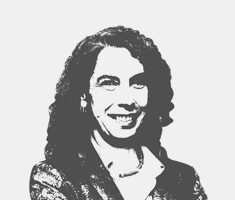Modelo Perú: A way to financial inclusion
Financial inclusion is positive. Greater financial inclusion generates benefits for individuals, families, and companies who access and use financial services. They can use them to make better use of their resources, handle them over time, protect themselves against unexpected events, and invest to increase their revenue flow and prosper. Greater financial inclusion means more stability, more growth, and less inequality. There is no economic or social inclusion if there is no financial inclusion. Thus, greater financial inclusion benefits everyone, those who become included and those who are already included. Progressing in financial inclusion requires greater and better offerings of financial services, together with the development of greater financial capacities in current and potential users.
Peru, for example, has favourable conditions for financial inclusion. The rise in microfinances over the last decades included thousands of Peruvians into the financial system and promoted the social and economic development of these families and their environment, but there are still challenges to face: only 29 % of adults1 have a savings account, and only 11 % of adults declare that they have a formal credit.
Both the State and the private sector should give clear signs of having an interest in promoting financial inclusion
Both the State and the private sector should give clear signs of having an interest in promoting financial inclusion. In Peru, Law 29985 regulates e-money as a tool for financial inclusion (2013) and the National Financial Education Strategy (2015) establishes goals, action plans, and the parties in charge of achieving mass access to and use of quality financial services.
The public effort is combined with the efforts of the private financial sector, where those efforts that benefit from the high rate of penetration of mobile telephony are particularly appealing. In this context, Modelo Perú was created within ASBANC, as an initiative by the private financial sector to boost  financial inclusion that brings together the Bank of the Nation, microfinance institutions, and other issuers of e-money. Pagos Digitales Peruanos (PDP) was created to implement the Modelo Perú project. PDP develops an inclusive, interoperable channel, a wallet that will operate from any mobile phone, including old telephones and prepaid telephones with no balance.
financial inclusion that brings together the Bank of the Nation, microfinance institutions, and other issuers of e-money. Pagos Digitales Peruanos (PDP) was created to implement the Modelo Perú project. PDP develops an inclusive, interoperable channel, a wallet that will operate from any mobile phone, including old telephones and prepaid telephones with no balance.
USE OF MOBILE TELEPHONY FOR FINANCIAL INCLUSION
For example, in December 2015 one of the major deployments for financial inclusion in Peru took place. A service was presented, which was designed so that more than 10 million Peruvian adults, who currently have no access to the financial system and who usually live in areas with a limited offering, have low education levels, high levels of informality, and are vulnerable to different situations, but who are determined to improve their lives and those of their families and their environment, could access a wider range of financial services.
The more financial inclusion there is, the greater economic growth and the less inequality there will be in countries
The challenge in Peru is adopting the use of e-money, as it makes it possible to save time and money in everyday life. Likewise, people become less vulnerable by accessing a savings account to be able to respond to certain events, receive a small loan to drive their personal business or meet their family needs, and purchase risk insurance.
The point is to execute a comprehensive strategy to ensure that millions of people benefit from positive effects in their well-being, live better, have more and better opportunities for progress, grow their businesses, and overcome adversity, which are the goals and purpose of financial inclusion. The more financial inclusion there is, the greater economic growth and the less inequality there will be in countries. Financial inclusion creates opportunities for everyone. Here lies the importance of promoting it.

